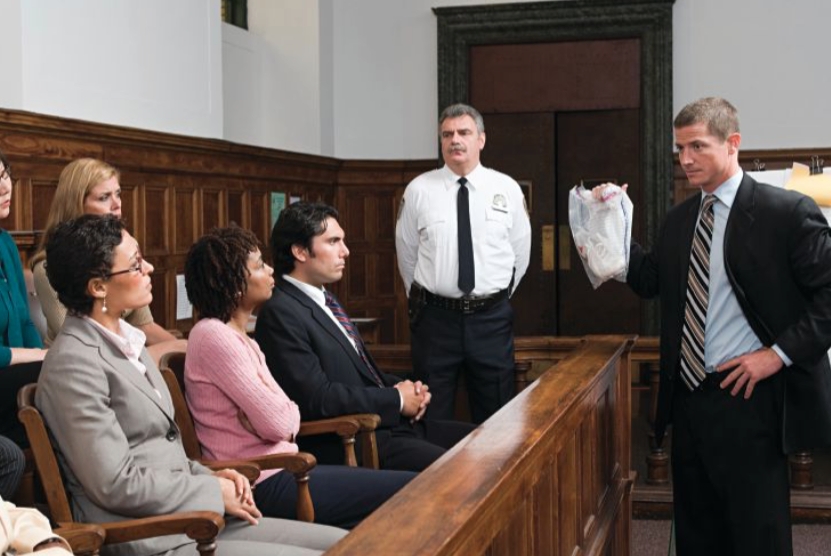
Features
Holding the Line
Opinion
Police and court: the human experience
When we hear the word “court,” as police officers, what comes to mind? Evidence, defence lawyers, notes, the stand, the stress of presenting, responsibility, anxiety, frustration, final accountability… There is a myriad of words that come rushing in. Yet once the case is over and the anxiety and other emotions we experience that cause us stress are through, what happens to us from the human element?
September 7, 2017 By Michelle Vincent

What happens when the accused calls out in a loud, haunting voice that he is innocent? Are you sure he is guilty? Can you be absolutely certain? How do you feel when there is a procedural error during the investigation that allows an accused to be acquitted? How about when you watch the accused, who you are sure is guilty, walk out of the courtroom with visions of them re-offending — like an impaired charge where the accused is let off with a careless driving ticket. Maybe the next time they get behind the wheel they will kill someone.
Regardless of the courtroom experience, we as police officers have invested our time and, very often, large amounts of our emotional energy. We have lived through the various interviews and photographic evidentiary collections. We have sifted through evidence both obvious and not so obvious. We have worked with the families of the victims to the point of feeling like family. Many of those experiences are etched in our memories forever. As police officers our roles can blend — the boundaries having little definition. We do not typically consider the aftermath of the courtroom experience, once the investigation is considered complete.
Ensuring we come out of the courtroom emotionally hinged and able to move forward in our world is not only important, it is essential. The first step is recognizing the various components that we are exposed to in the courtroom and what is perceived as the norm. For example, it is normal to be invested in a matter we have spent countless hours on, likely having attended the scene in a frontline or investigative capacity. Dealing with pressures from the public to have the case solved and resolved is also a factor we must consider. What many are not aware of, especially in investigative units, is the ongoing relationship expected from the victims in the investigation. These relationships can last years and can have a powerful effect on us.
We understand our training (and practicing our training repeatedly) often dictates how we will react under stress. Therefore, developing the habits of exercising self-awareness and self-reflection are very important. They are silent pieces. Your supervisor will have no idea whether you conduct a daily practice in these two areas. It is not something that becomes an entry in our notebooks. It may be obvious to others that we are connected and very clear in our position as having sorted out our “emotional work baggage,” or it may be obvious that we are not. It’s all in how we manage ourselves and our caseloads.
At the end of the day we are responsible for our mental health. Do this by recognizing that we, as police officers, are open to the vulnerabilities in the court experience as human beings — a case and trial can be so much more than we are actually trained to work with. At what point does this become an issue? We don’t know until it happens — a small crack in our armour is wrenched open, exposing a wound that must then be cared for. Understanding the human experience in our courtrooms and training can help. Let’s make sure through self-awareness and self-reflection we care for ourselves and know when it is beyond our scope.
Michelle Vincent is a 15-year York Regional Police officer with a Masters Degree in Arts in Counselling Psychology and a background in equine assisted therapy, workplace reintegration and teaching. Her counselling practice is supervised by a psychologist with a specialty in addictions and trauma. She can be contacted at: michelle@smith.net.
Print this page